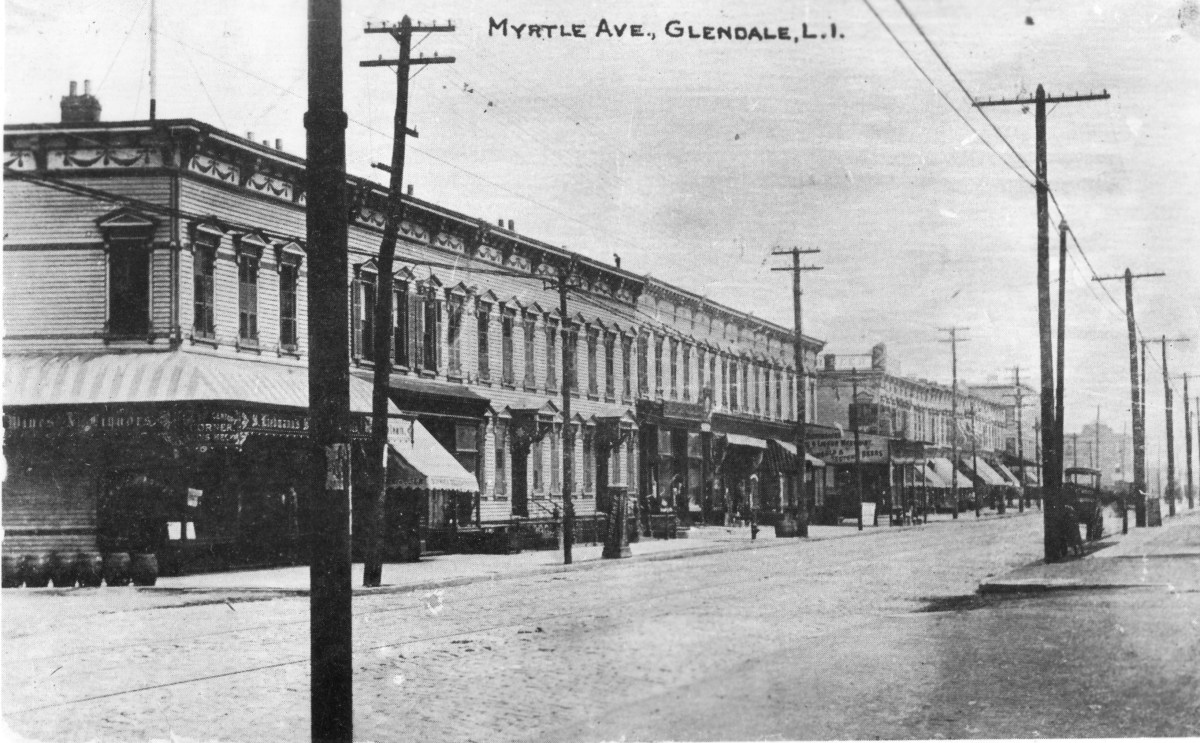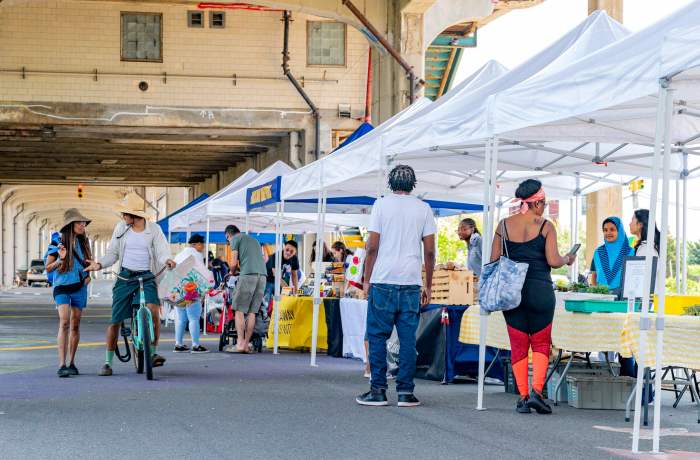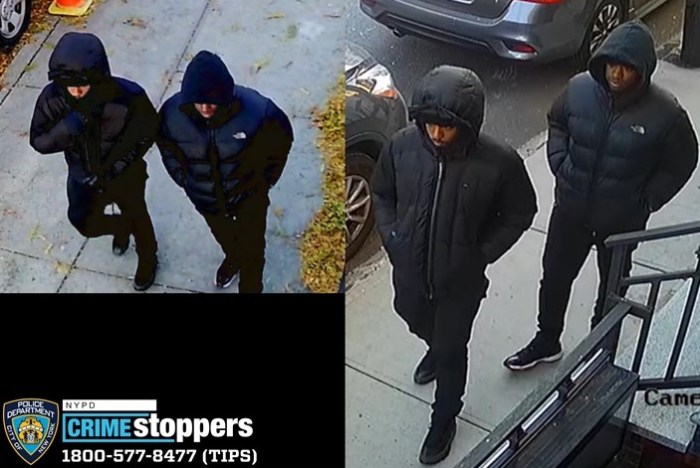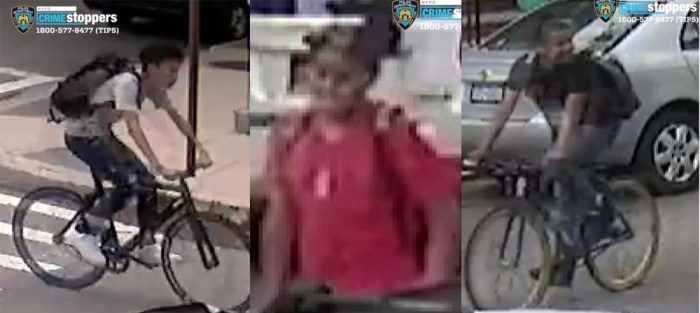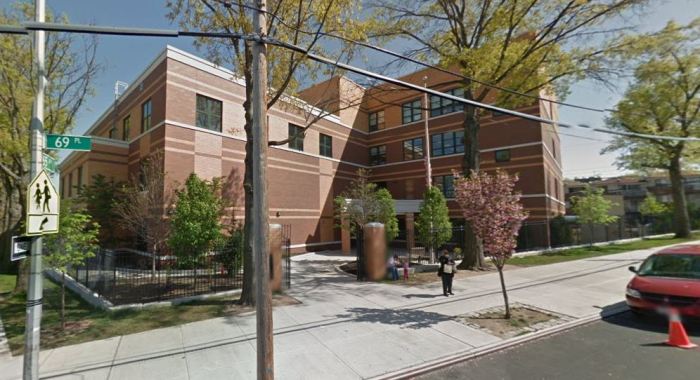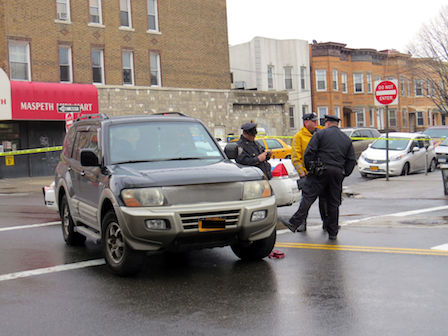John Brockmann’s Hanover House Hotel and Saloon was located on the northeast corner of Lafayette Place (now 69th Place) and Myrtle Avenue in Glendale. Later, this building became 25-41 Myrtle Ave., which is now 69-27 Myrtle Ave.
This section of Glendale had been part of the Tompkins Farm, which at one time consisted of about 55 acres and extended from 69th Street to 73rd Street, between the Long Island Rail Road’s Montauk Branch and Cypress Hills Cemetery.
On May 4, 1878, Joseph E. Tompkins sold 4 ½ acres of his farm, located on the north side of Myrtle Avenue from about 69th Place to Webster Avenue (present day 71st Street), for $5,500 to Sarah J. Gascoine. She and her husband, James, started a dairy farm with about 50 cows. They lived in the farmhouse with their two children and a farmhand.
Because of the limited pasture available for their cows, they bought hay and spent grain from local breweries to feed the cows. The milk was sold to wholesale dealers in Brooklyn.
On Sept. 4, 1880, Joseph E. Tompkins sold Gascoine additional land on the west side of Webster Avenue, north of Cooper Avenue, for about $1,500. But 11 years later, in May 1891, the Gascoines sold their farm to Robert Evans, who continued to run it and also raised peacocks. Their feathers were valuable for ladies’ hats at the time.
His son, John Evans, eventually took over the operation of the farm and subdivided it into building lots. The old farmhouse was first moved to Wyckoff Avenue (present day 73rd Street) and then eventually to Webster Avenue, where it was used for a brief period as a schoolhouse.
In about 1898, John Brockmann, who was then 60, purchased an odd-shaped lot on the corner of Myrtle Avenue and 69th Place, the western end of the Evans’ dairy farm. On the site, he built a two-story wooden-frame building to be used as a saloon on the ground floor and a hotel above it. He had operated a saloon in Brooklyn at Broadway and Jefferson Street, which he had sold before moving with his family to Glendale.
Brockmann was born in German in 1838 and came to America in 1856 when he was 18. He had a wife, Annie, who was 47 at the time they relocated to Glendale with their four sons: John, Herman, George and Frederick.
On March 23, 1896, the Raines Law took effect in New York and mandated that no alcoholic beverages could be sold on Sunday unless the establishment was a hotel. To qualify for the exemption, in Glendale, you needed a minimum of six furnished bedrooms and pay an annual license fee of $200.
Brockmann moved to Glendale because, under the law for Brooklyn, he would have needed 10 furnished bedrooms and to pay a $650 annual license fee.
Brockmann’s Hanover House Hotel served Jacob Ruppert’s beer on draft. Baseball fans know that name very well, as Ruppert used his beer-making fortune to purchase the New York Yankees in 1915.
Four years later, he facilitated the purchase of Babe Ruth from the Boston Red Sox in 1919, and forever changed the fate of the both teams — with the Yankees winning 26 World Championships between 1923 and 2004, the year the Red Sox wiped out an 86-year World Championship drought dubbed “The Curse of the Bambino.”
Shortly after the Hanover House Hotel was completed, Brockmann had one of the first telephones in Glendale installed. In the June 1, 1899, telephone directory, there were just six telephones in Glendale, and he had one of them with a Bushwick number #568-A, which was a party line.
His eldest son, John, helped him in the business as a bartender. Herman, before working for his father, was employed as a debt collector for Charles Gomer Sons, a clothing store. George was a salesman for Frederick Loeser’s Department Store in Brooklyn, and Frederick was still in school.
John Brockmann Sr. died in 1908 at the age of 69. His eldest son, John Jr., then 31, took over the operation of the hotel. Unfortunately, he became ill and died several months later. His three youngest brothers, Herman, George and Frederick, then took charge and operated the business as the Brockmann Brothers Hanover House Hotel.
To build up their bar trade, in 1909, they sponsored a baseball team known as the Glendale Hanover Field Club, and also sponsored a fishing club. In addition, the brothers joined a number of fraternal organizations in Glendale, such as the Glendale Benevolent Society, the Woodmen of the World and the F&A Court of Glendale.
During World War I, it is believed the Brockmann Family dropped the last “n” from the spelling of their name, making it “Brockman.”
When Prohibition took effect in January 1920, and the sale of alcoholic beverages containing more than ½ of 1% of alcohol by volume was prohibited, Brockman Brothers changed their hotel and saloon into a restaurant.
On June 19, 1946, the Brockman Family sold their property to Violet Hubmeier.
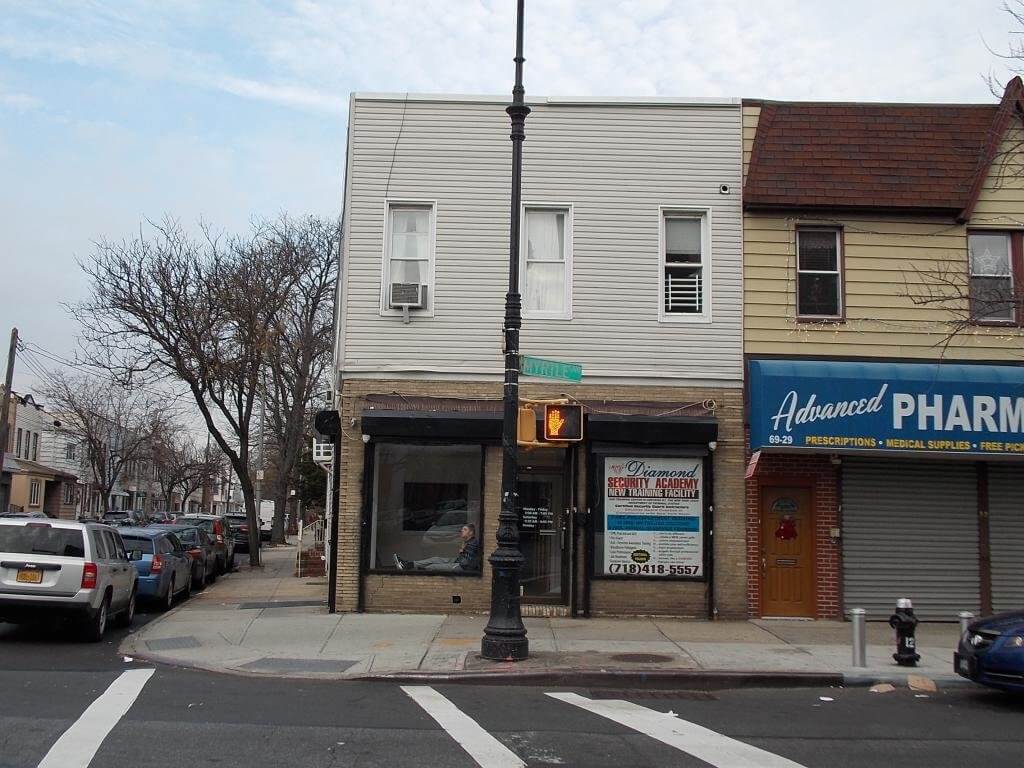
Reprinted from the Aug. 15, 1985, Ridgewood Times.
* * *
If you have any remembrances or old photographs of “Our Neighborhood: The Way It Was” that you would like to share with our readers, please write to the Old Timer, c/o Ridgewood Times, 38-15 Bell Blvd., Bayside, NY 11361, or send an email to editorial@ridgewoodtimes.com. Any print photographs mailed to us will be carefully returned to you upon request.

